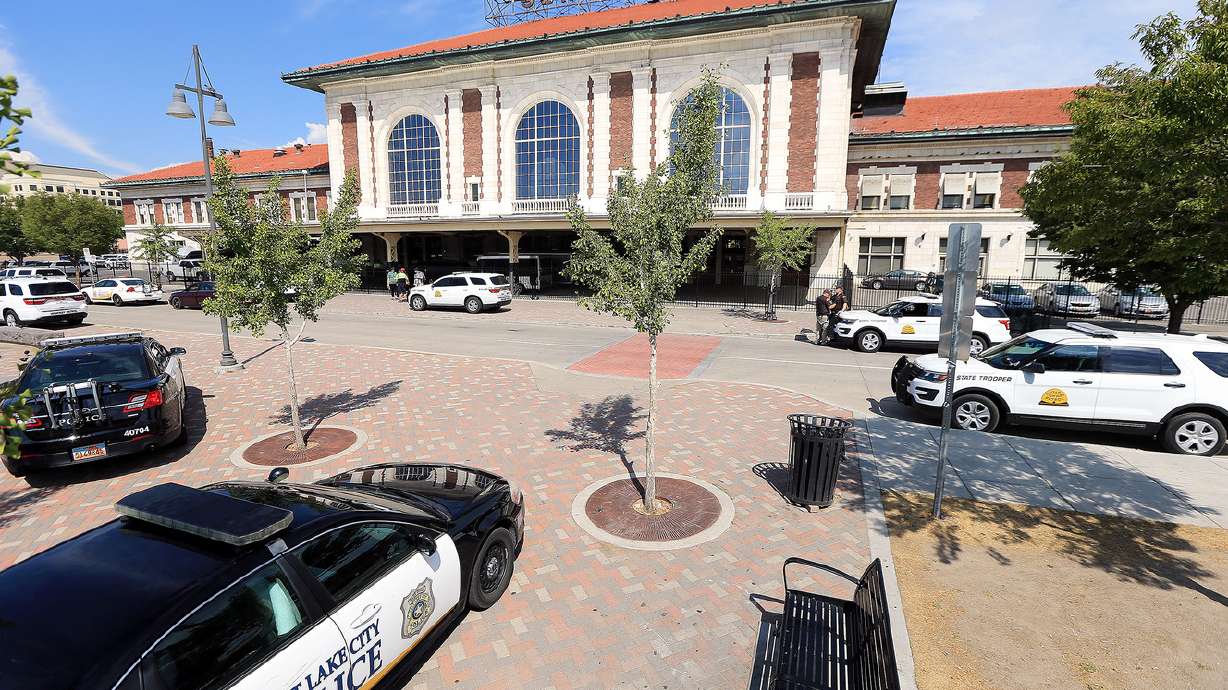Estimated read time: 3-4 minutes
This archived news story is available only for your personal, non-commercial use. Information in the story may be outdated or superseded by additional information. Reading or replaying the story in its archived form does not constitute a republication of the story.
SALT LAKE CITY — Of Operation Rio Grande's now more than 1,400 arrests, 36 more people Thursday were assessed for placement into treatment and other drug court programs, including Salt Lake County's new "specialty court."
That means 36 jail beds — as long as those people don't change their minds or drop out of the programs — will be freed up in the overcrowded Salt Lake County Jail starting next week, causing some nonviolent offenders to be booked and released just hours after arrest.
In addition, 24 more treatment beds became available at Odyssey House as part of the treatment phase of Operation Rio Grande meant to help divert drug addicts from jail, said Noella Sudbury, the county's Criminal Justice Advisory Council coordinator.
Those beds, combined with 37 others that opened up last month, act as another mile marker for county's goal to open about 240 more treatment beds by the end of the year.
"It's a really positive part of Operation Rio Grande," Sudbury said. "Focusing on treatment is going to actually help people get over their illness and get onto their path for recovery.
"These collaborations with the jail are key to this whole effort being successful," she added, "because without it, a lot of people just face a revolving door."
Starting at 7 a.m. Thursday, a team of social workers and public defenders spent most of the day seeking candidates for alternatives to jail, Sudbury said.
It marked the second "assessment day" to help divert people from jail and into treatment or other programs since Operation Rio Grande began Aug. 14.
Related:
While some will go to drug court or other county programs, others qualified for the specialty court — a new process designed to give drug offenders an incentive to sober up by offering them a chance wipe drug charges from their record if they complete treatment.
The 36 who qualified for specialty court will join 35 others deemed eligible for the program last month, Sudbury said. She didn't have an exact count of those who qualified Thursday night.
The group will begin orientation Wednesday, Sudbury said, and they will begin filling the new treatment beds next week.
Rep. Jim Dunnigan, R-Taylorsville, toured the Salt Lake County Jail during Thursday's assessments, wanting to see how candidates are selected for treatment programs.
Related:
Dunnigan sponsored Utah's Medicaid waiver bill that is expected to provide $6 million in treatment through Operation Rio Grande if the funds are approved by the federal government by the end of the year.
Dunnigan said he met and talked with about five candidates — including a mother who had lost custody of her children and another who was in an abusive relationship — who he said he was glad to see have an opportunity to get out of jail and turn their lives around.
"Some had never tried treatment before," he said. "They're still wondering what this is all about, but would like to get their lives on track."
There's always the expectation some will drop out, Dunnigan said, but he was glad to see they're getting the chance.
It's a really positive part of Operation Rio Grande. Focusing on treatment is going to actually help people get over their illness and get onto their path for recovery.
–Noella Sudbury, Criminal Justice Advisory Council coordinator
It's daunting to compare the several dozen who qualify for alternatives with the more than 1,400 of Operation Rio Grande's arrests, he acknowledged, adding that it's not surprising because "not everyone is ready for treatment."
Those arrestees were picked "fresh off the streets," and many "just want to be out of jail as soon as possible" rather than spending 90 days in detox and treatment, Dunnigan said.
But for those who do want treatment, the assessment gives opportunities to people who are ready change their lives, he said.
"I can't describe how appreciative they were," Dunnigan said. "They didn't even know there was a program or an opportunity. … It just warms your heart."












